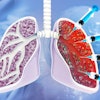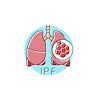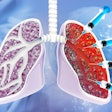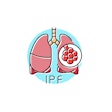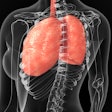
New data have revealed a significant link between the frequency of chest x-ray referrals from general practitioners (GPs) and earlier diagnosis and improved survival rates for lung cancer patients.
Researchers from the University of Sheffield analyzed records of more than 170,000 lung cancer patients in England from 2014–2018, combined with chest x-ray rates from 7,400 GP practices. They found that patients who attended practices with the highest chest x-ray usage were more likely to be diagnosed with lung cancer at an earlier, more treatable stage and, simultaneously, were less likely to be diagnosed at the later stages of cancer (stages three and four).
These patients were also shown to have better survival at both one and five years after diagnoses, compared with patients who attended practices with the lowest chest x-ray usage.
The study, “General Practice Chest X-ray Rate Is Associated With Earlier Lung Cancer Diagnosis and Reduced All-Cause Mortality: A Retrospective Observational Study,” was published in the British Journal of General Practice.
“While advanced technologies like CT scanners play a vital role [in lung cancer diagnosis], this study highlights the potential for optimizing the use of a simpler, cheaper tool like x-rays, which are easier for patients to access,” said lead author and GP Stephen Bradley, MD, PhD. “By encouraging greater use of chest x-rays, we can potentially diagnose lung cancer earlier, when treatment is more likely to be successful.”
Dr. Bradley is also a senior clinical lecturer at the University of Sheffield’s School of Medicine and Population Health. At the time of the study, he was at the University of Leeds.
Prior to the study, it was not widely understood if GPs — or primary care physicians — ordering more chest x-rays was beneficial. This could be why the uptake of chest x-rays varies between practices. The findings from Dr. Bradley and colleagues suggest chest x-rays could be a beneficial first diagnostic tool for patients with relevant lung cancer symptoms.
“There’s few cancer tests available in general practice which are fairly accurate, fairly cheap and very acceptable to patients,” said co-author Willie Hamilton, CBE, professor of Primary Care Diagnostics at the University of Exeter. “Now, we know that doing more chest x-rays finds more cancers and identifies them earlier in their growth, which is crucial to the best outcomes for patients.”
This is the first study of its kind to link chest x-ray rates and the national cancer registry. The study was funded by Cancer Research UK.
“Encouraging the use of chest x-ray for people with potential signs and symptoms of lung cancer by GPs and improving GP access to investigations is key,” said Lyndsy Ambler, senior strategic evidence manager at Cancer Research UK. “More research to understand the impact of other investigations used in primary care on patient outcomes is also needed to support efforts to diagnose cancer earlier.”



